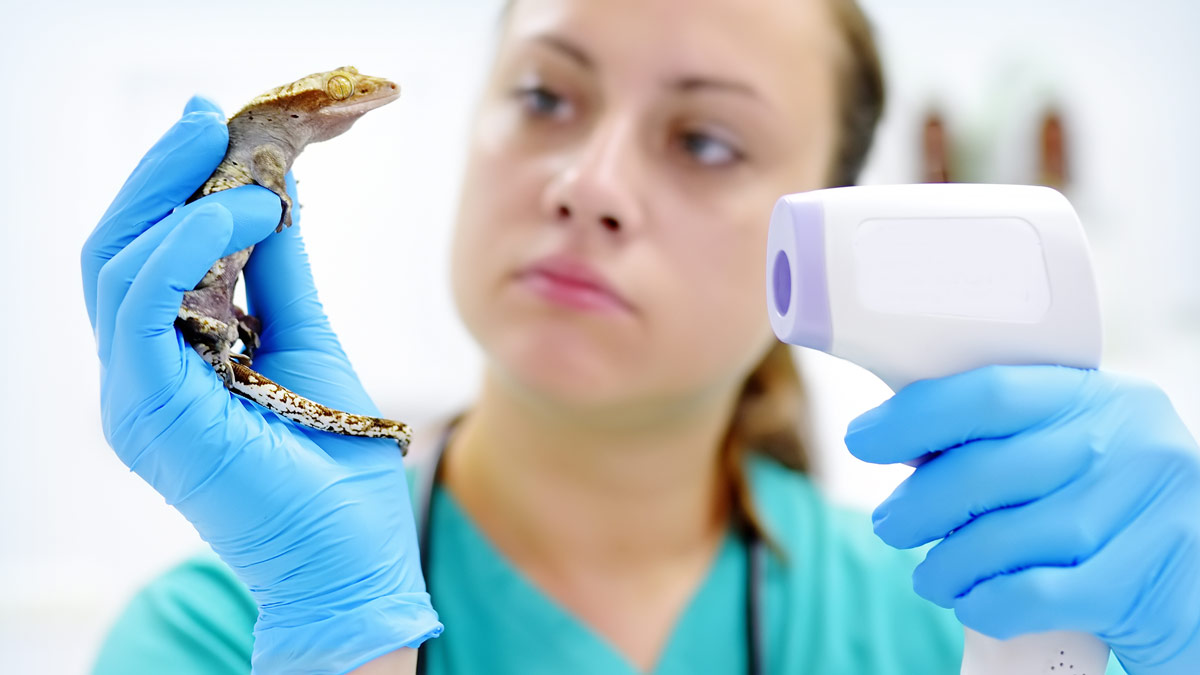Pre-Vet

Pre-Vet
- RIT /
- Rochester Institute of Technology /
- Academics /
- Pre-Vet
A personalized pre-vet program designed to maximize your candidacy for admission to veterinary schools.
Overview for Pre-Vet
If you’re interested in a career that involves caring for animals, conducting research related to animal illnesses, or working with livestock in university or government settings, RIT’s Pre-Vet Advising Program can help you reach your career goals.
Veterinary medicine is a very competitive field, but one that is growing. To become a successful candidate for veterinary school, you need to begin assembling a collection of courses, experiences, and documents beginning in your first year of college. Occupations in veterinary medicine are expected to grow much faster than other occupations between 2023 and 2033, with thousands of new jobs opening annually. RIT’s Pre-Vet Advising Program will guide you in preparing to apply to veterinary school and in understanding the vast opportunities available to you in veterinary medicine.
What is Pre-Vet?
Being accepted into a veterinary medical school requires a strong academic record, GRE preparation (now optional in many programs), and documentation of direct animal care under the supervision of a veterinarian (DVM), researcher (Ph.D.), or other animal health professional. The best pre-veterinary programs provide you with individual, personalized support to help you fulfill the veterinary school requirements of the rigorous Veterinary Medical College Application Service (VMCAS), a centralized application service used by veterinary colleges. RIT‘s Pre-Vet Advising Program offers you hands-on advising and guidance on everything from selecting courses well-suited for pre-vet students, preparing for entrance exams, connecting you to opportunities for internships and direct animal care, and so much more.
What Can You Expect From RIT’s Pre-Vet Program?
Housed in the College of Science, RIT’s pre-vet program provides personalized advising and guidance focused around preparation for admission to veterinary school. This includes:
- Personalized pre-vet academic advising for course selection, minors, and immersions
- Support and guidance in identifying opportunities that fulfill veterinary experience requirements, including direct animal care hours required for veterinary school admission and internship opportunities
- Assistance throughout the veterinary school application process
- Opportunities for extracurricular activities with fellow pre-vet students
- Guidance on summer, clinical, research, and co-op employment
RIT’s Pre-Vet Advising Program helps you acquire the research and real-world experience required for careers in veterinary medicine. Our experiential learning program can help you acquire the hours of animal care needed to help you become a competitive candidate for admission to veterinary colleges. The pre-vet program helps you find internships locally and nationally, including local opportunities such as internships at Seneca Park Zoo and Rochester Animal Services.
Over the past 15 years, RIT graduates have been admitted to top programs at some of the most highly ranked veterinary colleges in the nation, including:
- Cornell University
- Michigan State
- Tufts University
- University of Pennsylvania
- Ohio University
- Ohio State
- North Carolina
- Purdue University
- University of Illinois
- University of Florida
- University of Guelph in Canada
Featured Work and Profiles
-
Life as a DVM: An Advocate for Animals and People
Liliya Becktell ‘11 (pre-vet advising) Liliya Becktell ’11 knew RIT was home “the minute her feet hit brick.” The biology classes and faculty prepared her for Cornell’s DVM program and veterinary career.
Read More about Life as a DVM: An Advocate for Animals and People
Contact
Larry Buckley, Associate Dean for Academic Affairs, College of Science
ljbsbi@rit.edu, 585‑475‑7507
Susan Pagano, Associate Professor, Thomas H. Gosnell School of Life Sciences
sbssbi@rit.edu, 585‑475‑7343










